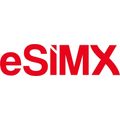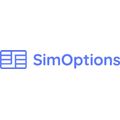Strong eSIM est une solution eSIM moderne conçue pour les voyageurs qui recherchent une connectivité rapide, fiable et simple. Nous proposons une livraison instantanée, des forfaits de données haut débit abordables et une assistance rapide 24h/24 et 7j/7 via WhatsApp, une fonctionnalité qui nous distingue. Avec Strong eSIM, rester connecté à l'étranger est un jeu d'enfant : scannez, connectez-vous et vous êtes en ligne en quelques secondes. Conçu pour la simplicité, la rapidité et l'assistance.

Strong eSIM est une solution eSIM moderne conçue pour les voyageurs qui recherchent une connectivité rapide, fiable et simple. Nous proposons une livraison instantanée, des forfaits de données haut débit abordables et une assistance rapide 24h/24 et 7j/7 via WhatsApp, une fonctionnalité qui nous distingue. Avec Strong eSIM, rester connecté à l'étranger est un jeu d'enfant : scannez, connectez-vous et vous êtes en ligne en quelques secondes. Conçu pour la simplicité, la rapidité et l'assistance.
Code Promo
Forfaits de données eSIM Strong eSIM pour le Koweït
Questions fréquemment posées
Strong eSIM propose-t-elle une eSIM de données illimitées pour le Koweït ?
Strong eSIM ne propose pas de eSIM de données illimitées pour Kuwait. Le fournisseur propose plutôt des forfaits de données fixes. Par exemple, un forfait 50 GB de 180 jours est tarifé à $289.90 USD, et un forfait 20 GB de 30 jours à $49.90 USD; les deux forfaits permettent le tethering et utilisent la couverture 5G dans Kuwait. Ces options offrent des allocations de données substantielles aux voyageurs tout en restant dans une limite claire et finie.
Strong eSIM offre-t-il une eSIM du Koweït avec numéro de téléphone et SMS ?
Strong eSIM does not provide forfaits eSIM koweïtiens qui incluent un numéro de téléphone ou une capacité SMS. Les plans disponibles sont uniquement de données, offrant aux voyageurs un accès Internet à haute vitesse pendant une période de validité définie. Pour la voix et les messages, les voyageurs peuvent utiliser des applications VoIP telles que WhatsApp, Telegram ou iMessage, qui fonctionnent sur la connexion de données et n’exigent pas de numéro de téléphone local ni de service SMS.
Combien de forfaits de données Strong eSIM propose-t-il pour le Koweït ?
Strong eSIM fournit 14 forfaits pays simples et 46 forfaits multi-pays pour Kuwait, offrant aux voyageurs 60 options eSIM distinctes au total. Les prix vont d’environ 1 $ à 290 $, tandis que les allocations de données s’étendent de 100 Mo à 50 Go, et plusieurs forfaits prennent en charge le tethering.
Résumé avec Gen AI. Dernière mise à jour:




